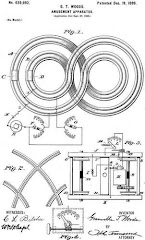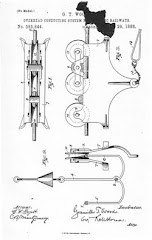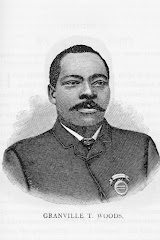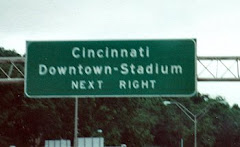- The Interview
Hello my name is Quinton King and I would like to interview you Granville T. Woods.
G- It would be my pleasure to let you.
Q- So how are you doing today Mr. Woods?
G- I’m doing just fine.
Q- OK then, let’s get this interview started!
G- Alright, I'm ready ask anything you wants and I will do my best to answer it as well as possible.
Q- What events early in your life might indicate or have sparked you to have an interest in the science field?
G- What inspired me was my father. My father worked in a machine shop that made repaired railroad equipment, speed equipment for carriages. My father would pay workers to teach me electrical concepts. Then after that I became chief engineer of all the steamers in all just of two years.
Q- That’s nice.
G- yeah it was, so next question please.
Q- What role did mentors play in developing talents/interests.
G- Once again my father played a big role in mentor ship. I had watched my father for the longest time and enjoyed what he done, so I just took the same path as him. And now I enjoy what I do since I have taken that path.
Q- OK. What was the state of knowledge that existed during the areas of science when you entered the field?
G- The state of knowledge was Industrialization. That’s why most people worked with railroads or energy because it was nothing but industrial work. And also as being as intelligent as me got me to move up two starts with my fathers work. I had lots of skill in what I did.
Q- Alright next question, What were some major accomplishments of you, and what methodologies were used for science to uphold?
G- Some of my major accomplishments were, Being called the “Black Edison”. Also I made the combination of the telephone and the telegraph. I made the multiplex railway system, is which when the railroad cars don’t have to use wiring systems to be able to operate. I was very successful in most of my inventions. Those were mainly my main accomplishments.Q- That’s a very excellent job. Very cool to know.
G- Yeah, OK next question.
Q- OK, what was your individual limitations as a scientist or as a person?
G- My limitations were to never think that my things are better than everyone else’s. Never to create nor destroy an invention unless fixed, or tested more than 7 times. Never to disrespect my mother or father, and made them both proud for having a son like me. Those were my limitations as a person and a scientist.
Q- What major events were going on in your life?
G- WWI was just ending and WWII was about to begin. The economy was poor but other than that really nothing. Very boring.
Q- Yeah, now these days nothing is boring.
G- Got that right, OK next question.
Q- OK, What musicians, artists, and writers were working at the same time as you?
G- I remember listening to Willie Nelson, John Lennon. Artist would be Picasso. Writers would be Mark Twain, George Orwell, Cervantes. Those are all the major people in the music business, art and writers.
Q- I have read some of those authors and even listened to some of the music singers you listed also.
G- Yeah lots of people know them and listen to them.
Q- What were the basic demographics at the time that you were working?
G- That every thing was overpopulated area’s, or everyone was racist. Not a lot of people had much money. Mostly everything was cheap. Lots of viruses, sicknesses going around killing people. Serious thing a lot of tragedies.
Q- Oh sounds bad.
G- Very bad.
Q- OK almost done here two more questions!
G- OK.
Q- How were gender and class roles defined during the time frame?
G- That children were outspoken, couldn't work had them doing no labor. Women wouldn’t get treated right. A man could be anything he wanted. A women could go to college for 3 years a man could drop out of high school and get a better job than her or, they could go for the same job and they would chose the man over the women. So women were basically told you stay at home with the children. That’s how it was classified.
Q- Wow that’s pretty deep.
G- Yes very.
Q- OK well that’s the end of the interview, thank you for your time and cooperation with me.
G- Your welcome.




